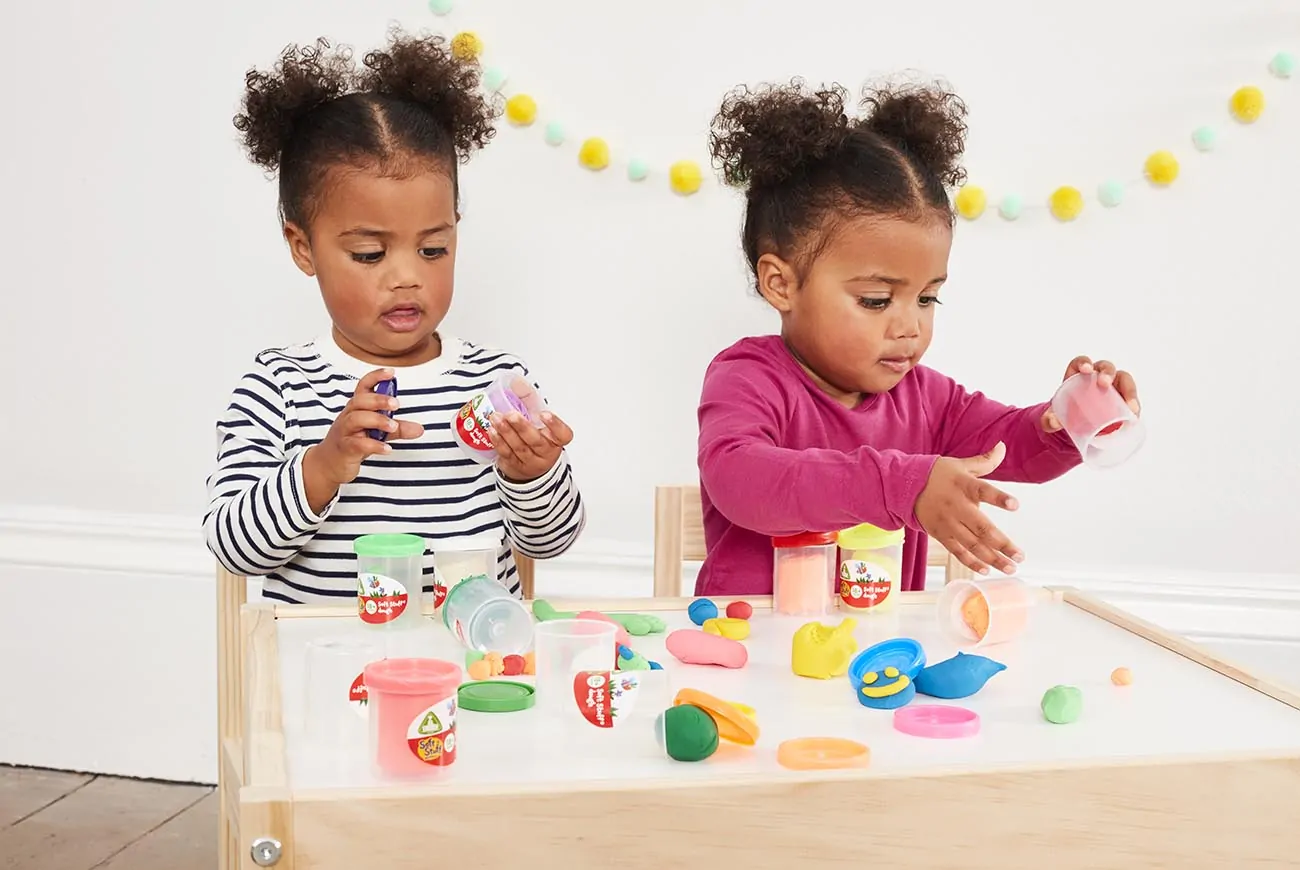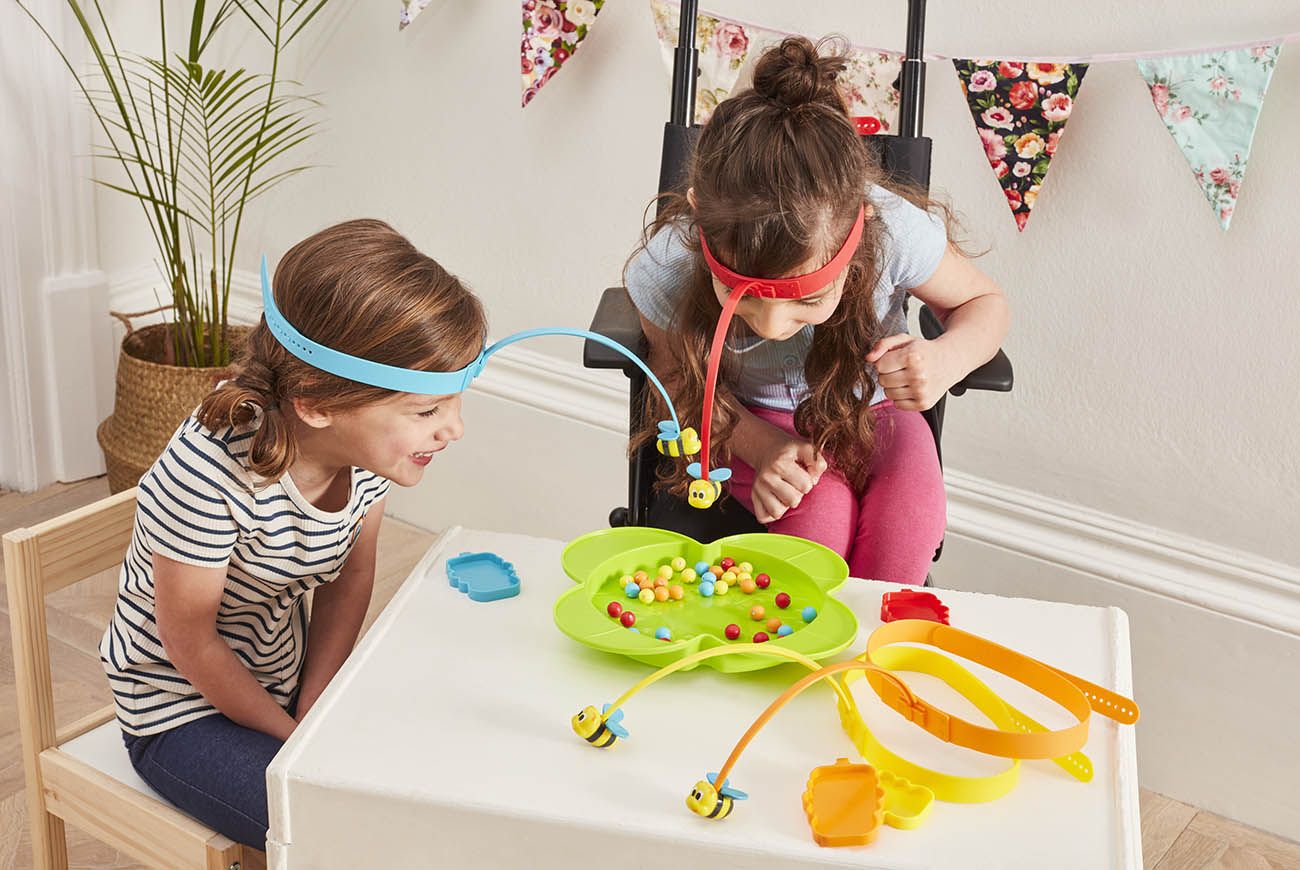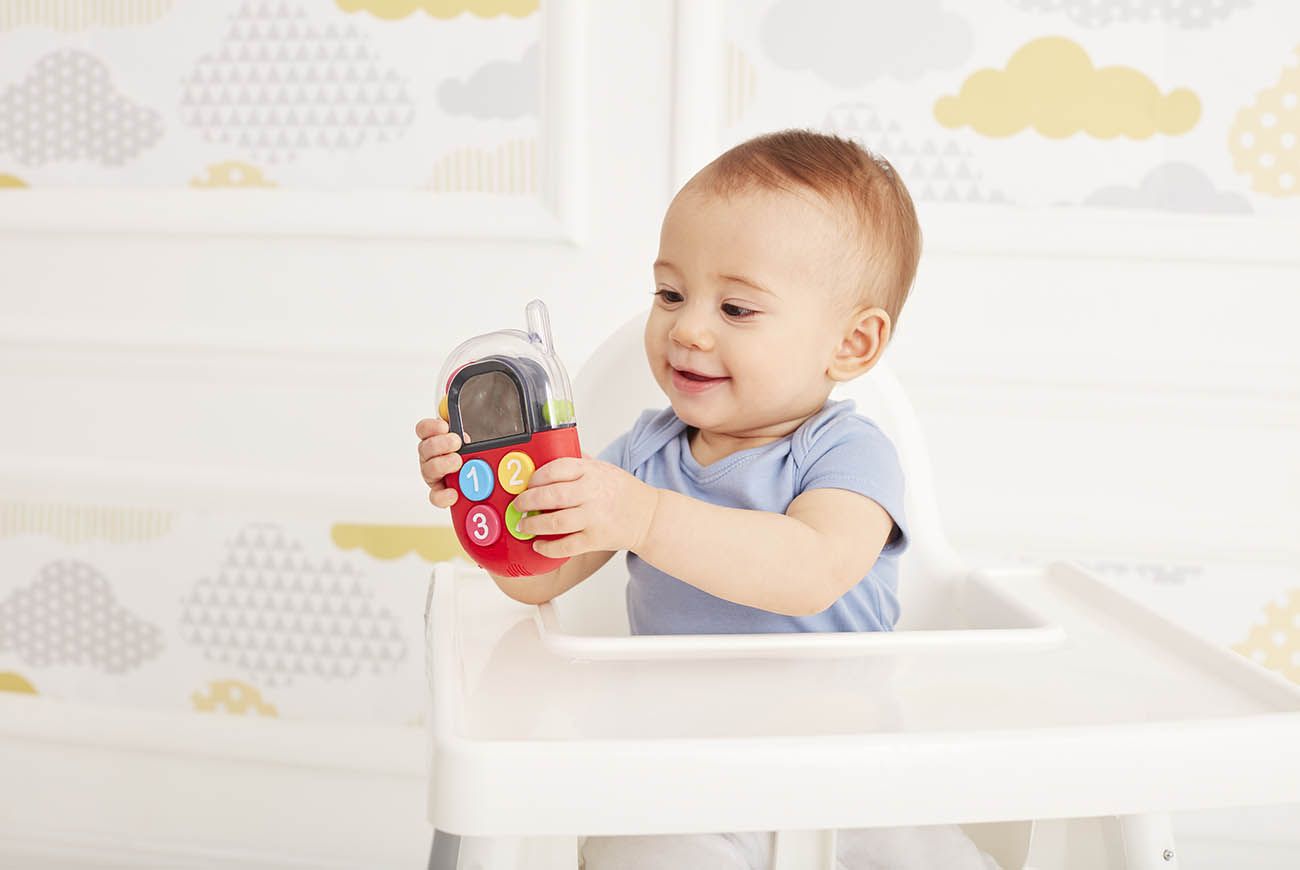Building Collaborative Skills with Toys
5 min read
Last Modified 26 October 2024 First Added 26 October 2024

One of the key skills we want to pass on to our little ones is the ability to form positive relationships with the people around them. We are constantly socialising with others whether it be our family, friends, or colleagues, and improving social skills allows children to develop their interactions, turn-taking, empathy, conflict resolution and much more.
Social skill toys can be used as a wonderful tool for children’s development, particularly in communication and teamwork. These toys and games allow little ones to practice real-life scenarios in a fun, relatable way. Whether they pretend to be on the phone talking to a friend, unlocking their imaginable car doors, or push around their baby in a pram, these toys can foster natural skill development in a fun and creative way.
But how exactly can toys help build teamwork and communication?

From an early age, children’s verbal and non-verbal skills are continuing to develop and using toys like games and puzzles, or imaginative play toys can aid this massively. These toys provide children with the ability to express fun ideas, negotiate their ever-so-serious roles and solve problems together, even if they are just babbling away (which is adorable to watch!), this can positively affect their foundational skill set.
Studies have shown that children develop their speech and language skills by interacting with their peers and adults in a shared task, such as a game or toy. The NHS recommended that children can develop the ability to share stories and form sentences by simply playing with dolls or playsets and action figures.
Basic toys like construction sets and LEGO Duplo can also offer a hands-on opportunity for children to ask each other for help in building their structures or try to figure out a tricky section together. We recommend using toys that need some form of adult help as this creates an “opportunity for communication”, this is when a child will have to start a dialogue with an adult to try to achieve their play objectives. For example, they might ask you to help them put something together or ask you to show them how to use a toy. This simple back and forth interaction can support a child’s cognitive ability as they learn to communicate, listen, and begin to follow instructions (NHS Calderdate & Huddersfield).
Teamwork, as we all know, is an essential skill for children to pick up on from an early age. You can support your child’s teamwork skills by introducing active toys that involve group play such as outdoor toys or playhouses. Children can work together to kick and throw a ball or play a game of house in their very own child-sized homes, setting up tea parties and greeting their guests. These games teach children how to build positive relationships as they listen to their peers, learn to take turns, and discuss bigger than life ideas to make their play time even more fun.
Research by the NHS highlights that children between the ages of three to five years old begin to learn how to play with others, share, and understand the basics of social skills. By age four, little ones begin to play with simple children’s games with their peers and show their early understanding of teamwork. Making this the perfect time to dive into a world of toys, toys, and more toys!

As adults, we completely understand the importance of communication, whether it involves working on a task through our education years or working on a project in our everyday jobs. Being able to talk to others and build positive relationships is a necessary skill that ensures children can connect with people and discover the world around them.
You can support a child’s development by choosing the best social skill toys that encourage playful and natural interaction. Here are some suggestions to enhance children’s foundational skills:
In summary, toys can be a useful and effective tool for developing key skills from a young age. Whether they are discussing make-believe narratives or asking each other for help, the toys mentioned in this article provide an opportunity for children to learn more about their emotions, communication styles, body language, and much more.
Remember to select toys that are interactive, offer group play opportunities, and allow for a world of imaginative play.
Happy developing!
Read our disclaimers here.